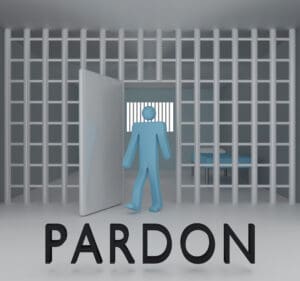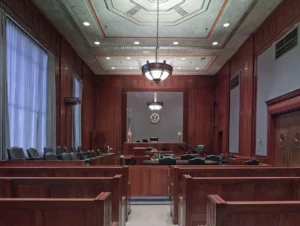Access to justice is a fundamental right, yet for many low-income individuals, navigating the complex legal system can be an insurmountable challenge. Legal assistance for low income individuals is crucial in ensuring that everyone, regardless of their financial status, can protect their rights and interests under the law. This article explores the various programs and resources available to help those with limited means obtain the legal help they need.
The justice gap in America is significant, with millions of low-income individuals unable to secure adequate legal representation for their civil legal problems. According to the Legal Services Corporation (LSC), low-income Americans do not receive any or enough legal help for 92% of their substantial civil legal problems. This stark reality underscores the critical importance of legal aid programs and pro bono services in addressing this disparity.
Civil legal aid refers to free legal assistance provided to low- and middle-income individuals facing non-criminal legal issues. These services can be instrumental in helping people secure basic needs such as housing, healthcare, government benefits, employment, and educational services. The types of legal problems that civil legal aid addresses are diverse and often crucial to an individual’s well-being and stability.
One of the primary avenues for obtaining legal assistance is through legal aid organizations. These non-profit entities are dedicated to providing free or low-cost legal services to those who cannot afford private attorneys. Legal aid organizations typically focus on civil matters, including family law, housing issues, consumer protection, and public benefits. These organizations often receive funding from various sources, including the Legal Services Corporation, state and local governments, and private donations.
The Legal Services Corporation, established by Congress in 1974, is the largest funder of civil legal aid for low-income Americans. LSC provides grants to 132 independent non-profit legal aid organizations across the United States. These organizations offer a range of services, from legal advice and representation to community education and outreach programs. However, despite their efforts, the demand for legal aid far outstrips the available resources, with LSC-funded organizations turning away nearly 50% of eligible clients due to lack of resources.
Another vital resource for low-income individuals seeking legal assistance is pro bono programs. Many law firms, bar associations, and individual attorneys offer pro bono services, providing free legal representation to those in need. These programs help bridge the gap between the high demand for legal services and the limited resources of legal aid organizations. Pro bono work not only benefits those who receive the services but also allows attorneys to fulfill their ethical obligation to contribute to the public good.
For those who may not qualify for free legal aid or cannot secure pro bono representation, there are other options available. Low-cost legal services are offered by various organizations, including law school clinics, community-based organizations, and some private attorneys who offer sliding scale fees based on income. These services can provide a middle ground for those who cannot afford standard legal fees but do not meet the strict income requirements for free legal aid.
Self-help resources have become increasingly important in addressing the legal needs of low-income individuals. Many courts and legal aid organizations provide self-help centers, where individuals can access information, forms, and guidance on handling legal matters without full representation. Online resources, such as legal information websites and interactive forms, have also expanded access to legal information for those who may not be able to afford an attorney.
One innovative approach to providing legal assistance is through online pro bono programs. Platforms like the American Bar Association’s Free Legal Answers allow low-income individuals to submit legal questions online and receive free advice from volunteer attorneys. This model helps overcome geographical barriers and provides a convenient way for people to get initial legal guidance.
The types of legal issues that low-income individuals often face are varied and can have significant impacts on their lives. Housing issues, including evictions, foreclosures, and landlord-tenant disputes, are among the most common legal problems. Family law matters, such as divorce, child custody, and domestic violence, also frequently require legal intervention. Consumer issues, including debt collection, bankruptcy, and predatory lending practices, can have long-lasting financial consequences if not addressed properly.
Public benefits are another area where legal assistance can be crucial. Navigating the complex systems of government programs such as Social Security, Medicaid, and food assistance often requires legal expertise. Legal aid attorneys can help individuals apply for benefits, appeal denials, and ensure they receive the assistance they are entitled to under the law.
For immigrants and refugees, legal assistance is often essential in navigating the complex immigration system. Immigration legal services can help with asylum applications, naturalization processes, and defending against deportation. Given the high stakes involved in immigration cases, access to competent legal representation can be life-changing.
The impact of civil legal aid extends beyond individual cases. By helping low-income individuals resolve legal issues, civil legal aid can prevent more serious problems from developing. For example, addressing housing issues early can prevent homelessness, while resolving family law matters can promote family stability. This preventive aspect of legal aid not only benefits individuals and families but also reduces the burden on social services and the court system.
Despite the importance of legal assistance for low-income individuals, funding for these services remains a significant challenge. Legal aid organizations often struggle with limited resources and high demand. Advocacy efforts to increase funding for legal aid at both the federal and state levels are ongoing, with supporters arguing that investment in civil legal aid yields significant returns in terms of social and economic benefits.
The COVID-19 pandemic has further highlighted the importance of legal assistance for low-income individuals. The economic fallout from the pandemic has led to increased legal needs in areas such as housing, unemployment benefits, and consumer debt. Legal aid organizations have had to adapt quickly to provide remote services and address the surge in demand for assistance with pandemic-related legal issues.
One area where legal assistance has been particularly crucial during the pandemic is in eviction prevention. With many low-income individuals facing job loss or reduced hours, the risk of eviction has increased dramatically. Legal aid attorneys have been instrumental in helping tenants understand their rights, negotiate with landlords, and access rental assistance programs. The implementation of eviction moratoriums at various levels of government has also required legal expertise to ensure proper enforcement and protect tenants’ rights.
The digital divide has emerged as a significant barrier to accessing legal assistance, particularly in the context of remote services necessitated by the pandemic. Many low-income individuals lack reliable internet access or the necessary devices to participate in virtual court hearings or consultations. Legal aid organizations and courts have had to develop strategies to bridge this gap, including providing technology assistance and maintaining some in-person services where possible.
Language access is another critical aspect of ensuring legal assistance is available to all low-income individuals who need it. Many legal aid organizations provide services in multiple languages and work with interpreters to ensure that language barriers do not prevent individuals from accessing justice. This is particularly important in immigration cases and in communities with large non-English speaking populations.
The role of technology in expanding access to legal assistance continues to evolve. In addition to online pro bono platforms, artificial intelligence and machine learning are being explored as tools to help streamline legal processes and provide basic legal information. While these technologies cannot replace the need for human legal expertise, they can help extend the reach of limited legal aid resources.
Community partnerships play a crucial role in identifying and addressing the legal needs of low-income individuals. Many legal aid organizations work closely with other social service providers, healthcare facilities, and community organizations to provide holistic support to clients. These partnerships can help identify legal issues early and connect individuals with appropriate resources.
The ethical obligations of the legal profession also contribute to the landscape of legal assistance for low-income individuals. The American Bar Association and state bar associations often encourage or require attorneys to perform pro bono work as part of their professional responsibilities. This commitment to public service helps supplement the work of dedicated legal aid attorneys and expands the pool of available legal resources for those in need.
Legal empowerment is an approach that goes beyond providing direct legal services to focus on educating individuals about their rights and how to advocate for themselves. This can include community legal education programs, know-your-rights workshops, and the development of self-help materials. By empowering individuals with legal knowledge, these initiatives aim to create long-term change and build community capacity to address legal issues.
The intersection of civil legal aid and social justice movements is an important area of focus. Legal assistance can be a powerful tool in addressing systemic inequalities and discrimination. For example, legal aid attorneys may work on impact litigation or policy advocacy to address issues such as housing discrimination, predatory lending practices, or unfair labor conditions that disproportionately affect low-income communities and communities of color.
Alternative dispute resolution methods, such as mediation and arbitration, can also play a role in providing low-income individuals with access to justice. These processes can be less formal and less expensive than traditional court proceedings, making them more accessible to those without significant financial resources. Some legal aid organizations offer mediation services or help clients prepare for alternative dispute resolution processes.
The training and retention of legal aid attorneys is a crucial aspect of maintaining a strong system of legal assistance for low-income individuals. Legal aid work can be challenging, with high caseloads and complex client needs. Efforts to provide ongoing professional development, address burnout, and create sustainable career paths in legal aid are important for ensuring the continuity and quality of services.
Measuring the impact of legal assistance programs is essential for demonstrating their value and securing ongoing support. Legal aid organizations increasingly focus on collecting data and conducting research to show the outcomes of their work. This can include tracking the economic benefits of legal interventions, such as prevented evictions or secured benefits, as well as qualitative measures of client satisfaction and community impact.
The future of legal assistance for low-income individuals will likely involve a combination of traditional legal aid services, innovative technology solutions, and broader efforts to address systemic inequalities. As the legal needs of low-income communities continue to evolve, so too must the strategies for providing accessible and effective legal assistance.
In conclusion, legal assistance for low-income individuals is a critical component of ensuring equal access to justice. Through a combination of legal aid organizations, pro bono services, self-help resources, and innovative programs, efforts are being made to bridge the justice gap. However, significant challenges remain, including funding limitations, the digital divide, and the sheer volume of unmet legal needs. Continued advocacy, innovation, and commitment from the legal community and policymakers will be necessary to ensure that all individuals, regardless of their income, can access the legal help they need to protect their rights and interests.
Website citations:
- https://www.legalaidhawaii.org
- https://legalaidnyc.org
- https://www.usa.gov/legal-aid
- https://www.nlada.org/tools-and-technical-assistance/civil-resources
- https://lafla.org
- https://www.lonestarlegal.org/news/2023/04/know-your-legal-rights-a-comprehensive-guide-for-low-income-individuals-expert-tips-and-faqs/
- https://www.americanbar.org/groups/legal_services/flh-home/flh-free-legal-help/
- https://justicegap.lsc.gov/resource/executive-summary/
- https://www.kansaslegalservices.org/node/1963/civil-legal-aid-101-what-legal-aid-and-how-can-it-help-me
- https://www.nycbar.org/serving-the-community/free-low-cost-legal-services/





















